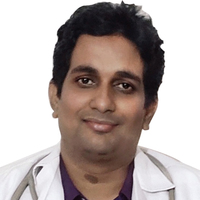Baidyanath Vatkulantak Ras Bri Tablet (10) Information
Baidyanath Vatakulantak Ras Bri is an ayurvedic medicine that is primarily used for the treatment of Epilepsy, Paralysis. Secondary and off-label uses of Baidyanath Vatakulantak Ras Bri have also been mentioned below. The key ingredients of Baidyanath Vatakulantak Ras Bri are Nutmeg, Nagkesar, Kajjali, Manashila. The properties of which have been shared below. The correct dosage of Baidyanath Vatakulantak Ras Bri depends on the patient's age, gender, and medical history. This information has been provided in detail in the dosage section.
Ingredients of Baidyanath Vatakulantak Ras
| Nutmeg |
|
| Nagkesar |
|
| Kajjali |
|
| Manashila |
|
Baidyanath Vatakulantak Ras Benefits
Baidyanath Vatakulantak Ras is used to treat the following -
Main Benefits
Other Benefits
Baidyanath Vatakulantak Ras Dosage
This is the usual dosage recommended in most common treatment cases. Please remember that every patient and their case is different, so the dosage can be different based on the disease, route of administration, patient's age and medical history.
| Age Group | Dosage |
| Adult |
|
| Geriatric |
|
| Adult |
|
| Geriatric |
|
Baidyanath Vatkulantak Ras Bri Tablet (10) Side Effects
No side effects of Baidyanath Vatakulantak Ras have been reported in the medical literature. However, you should always consult your doctor before using Baidyanath Vatakulantak Ras.
How to Take Baidyanath Vatakulantak Ras
You can take Baidyanath Vatakulantak Ras with following:
-
Can I take Baidyanath Vatakulantak Ras with Ghee?
Yes, ghee may enhance the therapeutic effect of Baidyanath Vatakulantak Ras. -
Can I take Baidyanath Vatakulantak Ras with Honey?
It's safe to use honey with Baidyanath Vatakulantak Ras. -
Can I take Baidyanath Vatakulantak Ras with LukeWarm Water?
There is no harm in having lukewarm water with Baidyanath Vatakulantak Ras.
This medicine data has been created by -

BAMS, Gastroenterology, Dermatology, Psychiatry, Ayurveda, Sexology, Diabetology
10 Years of Experience
References
Ministry of Health and Family Welfare. Department of Ayush: Government of India. [link]. Volume 1. Ghaziabad, India: Pharmacopoeia Commission for Indian Medicine & Homoeopathy; 1986: Page No 69-70
Ministry of Health and Family Welfare. Department of Ayush: Government of India. [link]. Volume 2. Ghaziabad, India: Pharmacopoeia Commission for Indian Medicine & Homoeopathy; 1999: Page No - 125 - 126